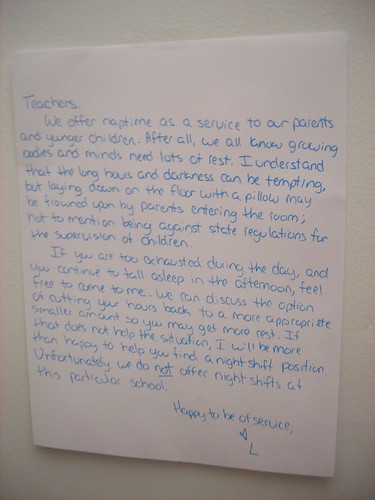Posted on June 27, 2007 in
Articles The Article: The Cheney Doctrine by Ruth Marcus in the Washington Post.
The Text: Let’s admit it: We in the media haven’t had this much fun with Vice President Cheney since he shot a man in the face and neglected, for a while, to tell the boss. And let’s admit: Like that episode, this one doesn’t matter much on its own.
So the vice president’s office wouldn’t report how many documents it had classified, and it wouldn’t let an obscure division of the National Archives look at its security procedures. In bureaucratese, OVP blocked ISOO from conducting an on-site review under Section 5.2 (b)(4) of Executive Order 12958, as amended.
Of all the vice president’s excesses, this one barely registers on the Cheney Scale. Its seismic impact, rather, stems from the combination of so many Cheneyesque attributes: mania for secrecy, resistance to oversight, willingness to twist the law and assertion of unreviewable power.
This is Cheney’s version of the $400 haircut/I voted for the $87 billion before I voted against it/I invented the Internet — a moment whose importance is magnified because it fits with jigsaw precision into an existing template. In this case, as the Post series on Cheney has shown, those preconceptions are justified.
As maddening as the vice president’s above-the-law attitude is the way he and his staff respond when challenged: first, the silent treatment, then the legal bait and switch. When the Information Security Oversight Office asked Cheney’s chief of staff, David S. Addington, why the office had blocked its inspection, Addington didn’t deign to reply — twice. Neither did Attorney General Alberto R. Gonzales, to whom ISOO wrote in January for guidance.
Cheney’s initial explanation for his refusal to file ISOO reports — and this is where the fun we’ve been having with this story comes in — rested on his unique status as both vice president and president of the Senate.
“This has been thoroughly reviewed, and it’s been determined that the reporting requirement does not apply to [the office of the vice president], which has both legislative and executive functions,” a Cheney spokeswoman told the Chicago Tribune in May last year.
This makes no sense — as the White House’s subsequent abandonment (mostly) of this argument suggests. No doubt, the vice president wears two hats. But it’s hard to credit the argument that he is not as a result, “within the executive branch,” and therefore covered by the executive order.
Indeed, when President Bush rewrote the order in 2003, he granted the vice president explicit authority “in the performance of executive duties” to classify and declassify information. So under Cheney’s interpretation he simultaneously gets new executive classification powers but isn’t part of the executive in having to report his handling of classified material.
Moreover, when the executive order wanted to exempt the vice president’s office from one provision, it did so clearly. The amended order explicitly relieves the vice president’s staff from having to comply with a rule letting outsiders seek declassification.
Now, the argument has shifted from that shaky ground to other, equally shaky ones.
First, that the office of the vice president isn’t an agency covered by the regulation. “Supreme Court precedent shows that the vice president and the president are not seen as an agency when it comes to executive orders,” the battered briefer, Dana Perino, dutifully recited Monday.
She was referring to a 1992 census case, Franklin v. Massachusetts, in which the Supreme Court said that the president was not considered an “agency” for purposes of the Administrative Procedure Act. That might be vaguely relevant if the executive order didn’t contain its own, far broader definition of agency (“any other entity within the executive branch that comes into the possession of classified information”).
Second, Perino now argues, the president never intended for his office or the vice president’s to be covered by the reporting and inspection rules.
The president and vice president, for purposes of this order, she says, are one and the same — an argument that doesn’t quite square with Perino’s point, at the same briefing, that “the vice president’s paycheck comes from the Senate.” And, Perino says, neither is covered by the relevant part of the executive order.
That would be a fine argument, and certainly within the president’s power, except that’s not what the order says. It’s not the way previous administrations have interpreted it — or how this one did for the first two years, when Cheney’s office filed reports about its classification procedures. If the president meant to change that practice when he rewrote the executive order in 2003, he didn’t mention it.
In the end, Cheney vs. ISOO is just another example of the Cheney doctrine at work: Never willingly provide information, however innocuous. Never do in public what you can accomplish by stealth. And never make a reasonable argument when an outlandish one is at hand.
The Analysis: Dick Cheney is a crazy mother fucker.















